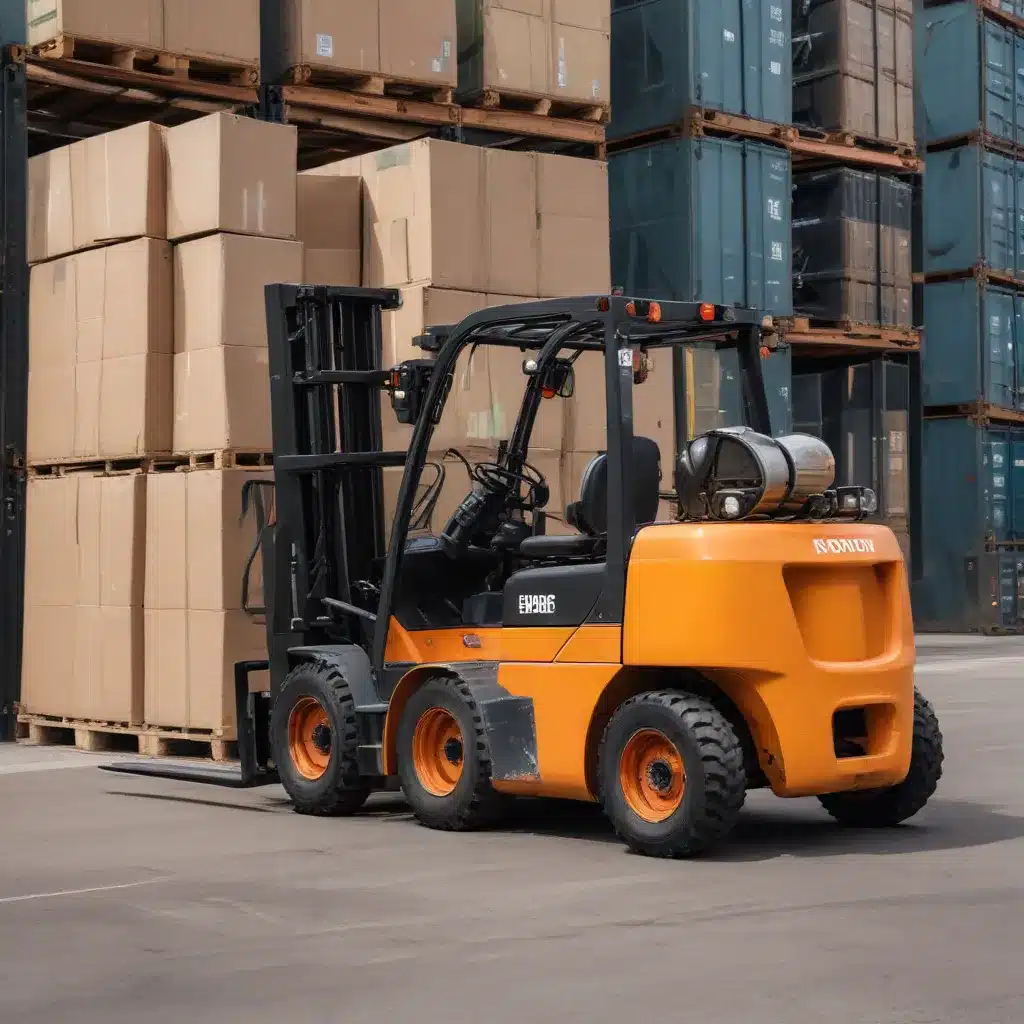
The Rise of Eco-Friendly Forklifts
As sustainability becomes a growing concern across industries, the material handling sector is leading the charge in adopting environment-friendly solutions. One of the most significant advancements in this realm is the emergence of electric forklifts. These zero-emission vehicles are powered by rechargeable batteries, eliminating the need for traditional fossil fuels and dramatically reducing the carbon footprint of forklift operations.
The benefits of electric forklifts extend far beyond just environmental considerations. These advanced machines offer several operational advantages that make them an attractive choice for businesses striving to optimize their forklift fleets. With extended runtimes and quick-charging capabilities, electric forklifts can maintain productivity levels while minimizing downtime. Additionally, the absence of engine noise and reduced vibrations creates a more comfortable and safer work environment for operators.
Harnessing Automation and Robotics
Alongside the shift towards electric power, the material handling industry has witnessed a surge in automation and robotics. Autonomous guided vehicles (AGVs) and robotic forklifts are transforming the way warehouses and distribution centers operate. These self-driving machines can navigate through facilities, perform tasks, and optimize workflows without the need for manual intervention.
The integration of automation technology in forklift fleets offers numerous benefits. Autonomous forklifts can operate 24/7, increasing productivity and efficiency. They also eliminate the risk of human error, enhancing safety and reducing the potential for accidents. By streamlining material handling processes, automated forklifts contribute to a more sustainable and cost-effective operation.
Leveraging Telematics and IoT
The digital revolution has also made its mark on forklift fleet management, with the integration of telematics and the Internet of Things (IoT) playing a pivotal role. These technologies provide fleet managers with real-time data and insights that enable them to make informed, data-driven decisions.
Telematics systems equipped on forklifts collect valuable information on usage patterns, maintenance needs, and operator behavior. This data allows fleet managers to implement proactive maintenance strategies, reducing unplanned downtime and extending the lifespan of their equipment. Additionally, the connectivity provided by IoT integration enables seamless coordination between forklifts and other material handling equipment, optimizing workflow and enhancing overall efficiency.
Harnessing Predictive Analytics
Building on the data-driven approach, predictive analytics is revolutionizing forklift fleet management. By analyzing historical performance data and identifying patterns, these advanced algorithms can forecast future events and trends. This capability empowers fleet managers to anticipate maintenance requirements, address potential issues proactively, and optimize resource allocation.
The predictive nature of this technology enables a shift from reactive to proactive maintenance practices. By addressing maintenance needs before they become critical, businesses can reduce downtime, improve forklift reliability, and minimize repair costs. Furthermore, predictive analytics can help optimize fleet utilization, ensuring that each forklift is deployed where it is needed most, maximizing productivity and minimizing waste.
Cloud-based Fleet Management Software
In the digital age, cloud-based fleet management software has become an invaluable tool for streamlining forklift operations. These centralized platforms provide real-time visibility, data analytics, and remote monitoring capabilities, allowing fleet managers to access critical information anytime, anywhere.
By adopting cloud-based solutions, businesses can enjoy seamless integration with other systems, such as enterprise resource planning (ERP) and warehouse management systems (WMS). This seamless data flow enables process automation and enhances overall operational efficiency. Additionally, the scalability of these cloud-based platforms ensures that businesses can accommodate their evolving needs as they grow, future-proofing their forklift fleet management strategies.
Embracing Sustainability: A Multi-faceted Approach
Sustainable forklift practices go beyond just the choice of power source. Businesses are exploring a holistic approach that encompasses energy-efficient technologies, eco-friendly materials, and alternative fuel options.
Regenerative braking systems and smart charging capabilities are examples of energy-efficient features that can help minimize energy consumption and reduce the environmental impact of forklift operations. Additionally, the use of recyclable components and design strategies that enhance the lifespan of forklifts contribute to a more sustainable manufacturing process.
Beyond electric forklifts, alternative fuels such as hydrogen fuel cells and compressed natural gas are also gaining traction. These technologies offer extended runtimes and faster refueling times, providing enhanced efficiency and productivity while reducing emissions.
The Role of Operator Training
Sustainable forklift practices are not just about the technology; they also depend on the people operating the equipment. Comprehensive training programs that emphasize eco-friendly driving techniques and proper maintenance procedures empower forklift operators to contribute to a greener future.
By educating operators on energy-efficient practices, such as smooth acceleration, proper tire inflation, and minimizing idling, businesses can optimize forklift performance and further reduce their environmental footprint. Additionally, training operators to quickly identify and report any issues or malfunctions helps minimize the risk of hazardous material spills and promotes a more sustainable operation.
Navigating the Future of Forklift Fleet Management
The future of forklift fleet management is rapidly evolving, driven by technological advancements and increasing sustainability demands. By embracing innovative solutions, businesses can optimize their forklift operations, improve efficiency, reduce costs, and enhance their environmental stewardship.
As the industry continues to evolve, it is crucial for businesses to stay informed about the latest trends and best practices in forklift fleet management. Partnering with experts like Forklift Reviews can provide valuable insights and guidance on navigating the path towards a more sustainable and efficient forklift fleet.
By leveraging the power of electric forklifts, automation, telematics, predictive analytics, and cloud-based software, businesses can position themselves at the forefront of the material handling industry. This holistic approach to forklift fleet management not only benefits the environment but also enhances operational performance, reduces costs, and strengthens the overall competitiveness of the business.
As the world becomes increasingly conscious of the need for sustainable practices, the forklift industry is leading the charge, redefining its operations to create a greener future. By embracing innovative technological solutions, businesses can contribute to this crucial transformation, paving the way for a more efficient, eco-friendly, and resilient material handling landscape.

